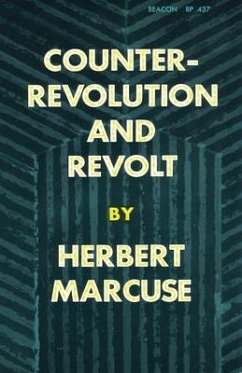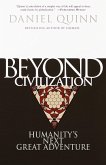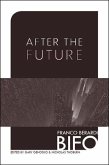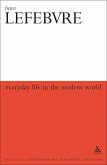In this book Herbert Marcuse makes clear that capitalism is now reorganizing itself to meet the threat of a revolution that, if realized, would be the most radical of revolutions: the first truly world-historical revolution. Capitalism's counterrevolution, however, is largely preventive, and in the Western world altogether preventive. Yet capitalism is producing its own grave-diggers, and Marcuse suggests that their faces may be very different from those of the wretched of the earth. The future revolution will be characterized by its enlarged scope, for not only the economic and political structure, not only class relatoins, but also humanity's relation to nature (both human and external nature) tend toward radical transformation. For the author, the "liberation of nature" is the connecting thread between the economic-political and the cultural revolution, between "changing the world" and personal emancipation.








